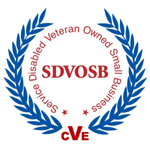It is best to consider flexible printed circuits as early as possible in the design of an electronics system. We at Elmec would like to think that the answer to every packaging problem is ‘flexible circuits’! However, you can often save yourself (and us) a lot of time by considering the cost for your application as early as possible. You should try to consider the least expensive alternatives first. When designed properly, flexible circuits can often save you dollars on assembly costs and allow you to do things that other types of assemblies cannot achieve. In some cases good ol’ fashioned round wire is the best solution. If you are considering flexible printed circuits, then the following can be used as a generic checklist of items that need to be considered in the design stage.
Mechanical Requirements
Envelope. Detailed dimensional constraints
Installation. Sketches or a description of the intended configuration
Mating assembly. Detailed data on the mating assembly is required when mating directly or soldering to pads on the flexible circuit.
Flex life
Dynamic flex (flexes during operation)
Flexing required for several connects and disconnects
Flexing during a one time installation
Flexible areas. Identify which areas will and will not be bent. Identify areas which should be rigid.
Electrical Requirements
Schematic, net list, wire list, or a sketch showing electrical connections
Current and voltage requirements
Shielding requirements. Indicate shielding locations, or indicate which signals must be shielded. Requirements such as cross-talk, capacitance, controlled impedance, and isolation requirements should be considered. If few lines have the special requirements, it may be advantageous to use a combination of flexible circuits and coax.
Environmental Requirements
Temperature, pressure, and humidity operating range should be considered.
Vibration requirements
Chemical exposure such as heavily caustic or acidic
Additional Valuable Information
Drawings of the next assembly
Actual dimensions of the flat flexible circuit
Mock-ups or existing chassis
Individual to contact when technical questions arise.




